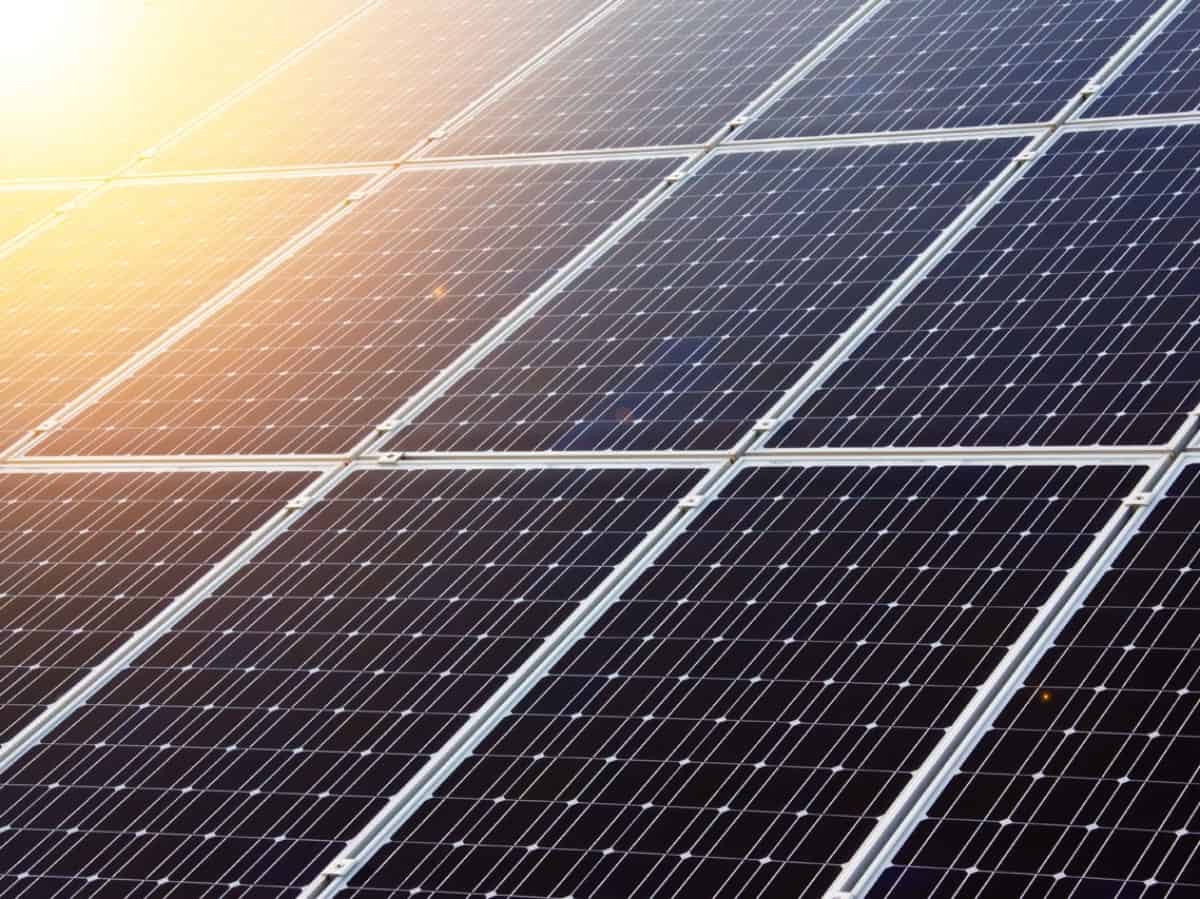Over the past few years, there has been an increased focus on the generation of green technology which not only serves to help homeowners save money on electricity but also help preserve the planet. This has given rise to the development of solar panels for homes. For those who might not know, these solar panels take energy from the sun and turn it into electricity that can power their home’s appliances; however, it’s important to take a deeper dive into the question, “how do solar panels generate electricity?”
Additionally, it’s important homeowners note that solar panels also have the ability to yield tax credits. These can help you save money during tax season. With this in mind, homeowners need to understand how solar panels work so they can get the most out of this investment.
Discover Energy Audits with Solar Energy and ONIT Home
Try our Free Energy Audit to make sure your home is performing at optimum energy efficiency. We’ll inspect every nook and cranny of your home to make sure it’s best serving your needs. We’ll also give you tips on lowering your energy bills, conserving energy, and creating a more efficient space. To learn more about how we can help you maintain a top performing home, visit us online to get started!
How Do Solar Panels Generate Electricity For a Home?
First, solar panels work by absorbing sunlight using something called photovoltaic cells. Then, these cells generate a direct current (DC) of energy that converts into an alternating current (AC). The alternating current is what your home uses to power your appliances. This transformation uses inverter technology to complete the process.
The main steps to note here include:
- Energy from the sun strikes the photovoltaic cells on the solar panels
- The solar panels’ photovoltaic cells absorb energy from the sun and convert this into DC energy
- Solar inverter technology converts DC energy into AC energy
- This AC energy flows from the solar panels to the home’s electrical grid
- Electricity flows through the home, powering the devices
It’s also possible that excess electricity not used by the home could be fed back to the city’s power grid. This could yield a utility credit for homeowners.

How Do Photovoltaic Cells of the Solar Panels Generate Electricity?
For those who are looking to learn more about how the photovoltaic cells of the solar panels work, there are a few points to note. Typically, solar panels are made of silicon. These silicon cells are combined with a metal frame, glass casing, and wires that promote the flow from the silicon cells to the home itself.
Silicon is a nonmetal that has conductive properties. This means that it can absorb sunlight and convert it into electricity. When light strikes the silicon on the solar panels, the electrons are set in motion. This leads to the development of an electric current. This is called the “photovoltaic effect” and it powers everything that happens with the solar panels.
The photovoltaic effect was discovered back in 1839 and it describes how sunlight can be used to generate electricity. This process follows these steps:
- The photovoltaic cells on the solar panels absorb solar radiation from the sun
- When the sun’s rays interact with the silicon cells, electrons start to move, which creates a flow of electric current
- Wires capture this movement of electrons in the form of electricity, turning it into DC before it comes AC using inverter technology
This scientific process is how homeowners can use these panels to generate electricity.
How Does the Grid Connection Work With Solar Panels?
Finally, it’s important to note that some homeowners might be able to get a credit from the local power company if they’re able to feed excess electricity back to the home’s power grid. All homes that connect to an electrical grid are going to have a utility meter. This is what the utility provider uses to measure how much power your home is using and when you’re in need of additional power. When you install solar panels on the roof of your home, make sure to connect the panels to the utility meter. Then, the production of the solar system can be assessed by this meter.
Most homeowners who install solar panels are going to have access to something called net metering. Through this process, it’s possible for homeowners to send excess electricity to the power company, particularly during sunny parts of the year (such as the summer months). When this energy goes to the power company, homeowners can receive a utility credit on their electric bill. Then, when the sun isn’t shining as much (like in the winter), homeowners will be able to access these credits and use them to draw energy from the grid at a discount.
In this manner, net metering can help homeowners save money while also helping the planet because they feed power back to the power grid. This means the grid doesn’t have to work as hard to generate electricity.

Rely on Solar Panel Expertise from ONIT
These are a few of the most important points that all homeowners need to keep in mind with solar panels. Want to learn more about how solar panels can help your home? Then rely on the team from ONIT. For over a decade, we’ve been helping homeowners We take great pride in connecting our customers with products and services that can help them improve their homes. Call us today at 1-833-433-0331 to learn more about how we can help you with your solar power needs!
Interested in learning more about how solar solutions can benefit your home? Reach out to the professionals at ONIT for a personalized quote. ONIT’s expert team can help make your green energy goals a reality. And when you install a solar power system with ONIT Home, you can install a whole home water filtration system and smart security system for FREE with installation in two weeks. Contact us today at 1-833-433-0331 to learn how you can enjoy this special offer.



